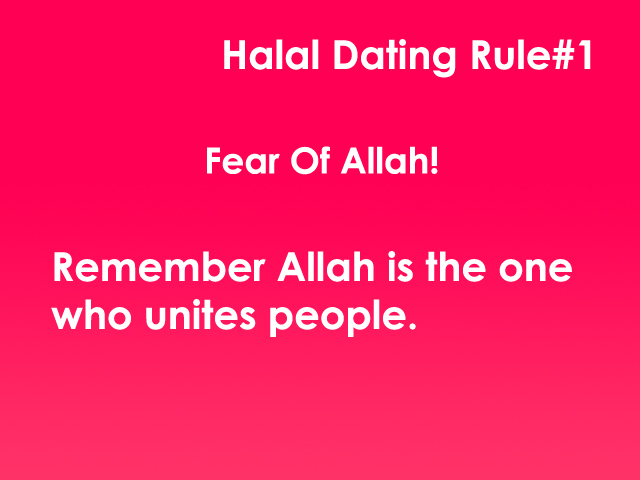Dating. It’s everywhere.
In young adult (YA) as well as adult romance novels.
In popular films, poetry, art and literature.
In popular-culture songs and music. In self-help websites.
In magazine/newspaper advice columns. In timeless, classical literary works.
The lure of ‘romantic liaisons’ exists since time immemorial.
The story is more or less the same. Boy meets girl (or vice versa). Eyes lock. Sparks fly. Cupid strikes (supposedly).
Bam! They’re “in love” and eager to meet, which they do, with or without their parents’ knowledge and consent.
Many a fictitious love story has brought in thousands if not millions of sales for content-producing companies that cash in on the incessant demand in humankind for fictitious tales that set their hearts aflutter.
The desire for romance and dating stems from a basic human need, to love and be loved in return, which exists in every human, especially the young and more inexperienced singles.
However, in the light of Islam, it is often shocking for singles to discover that any kind of such ‘romantic’ contact with a person of the opposite gender is totally forbidden.
That is when they wonder: Why?
How can something that is (apparently) so ‘beautiful’, be forbidden by God who created us with these desires in the first place?
Dating in the Modern Day
There is the kind of romance that society frowns upon and which elders forbid, depending on the prevalent culture, e.g. extramarital affairs, living together before marriage, or dating someone from another race or social stratum.
Then there is the romance and dating that is allowed by some societies, renditions of which vary according to cultures across the world.
 For example, in some countries, dating freely and living together publicly is allowed for single boys and girls beyond a certain ‘legal’ age viz. 18 and above, beyond which the government (as well as their parents) allow them to engage in promiscuous behavior. The same societies, however, frown upon and deem it illegal for single boys and girls under the age of 16 to engage in sexual activity, yet allow them to engage in parentally sanctioned dating.
For example, in some countries, dating freely and living together publicly is allowed for single boys and girls beyond a certain ‘legal’ age viz. 18 and above, beyond which the government (as well as their parents) allow them to engage in promiscuous behavior. The same societies, however, frown upon and deem it illegal for single boys and girls under the age of 16 to engage in sexual activity, yet allow them to engage in parentally sanctioned dating.
In Eastern cultures, on the other hand, dating is usually not accepted socially. A watered down form of dating that is allowed by the elders of most Eastern cultures and societies, is when a young couple that is engaged to be married with their families’ consent, is allowed to meet each other in a controlled environment before the wedding.
Although both the above kinds of dating are forbidden in Islam, the latter is the most ‘socially accepted’ form of it that is rampant in most parts of the world.
Engagement: Socially Accepted Dating
The desire to go out on a date and be romantically involved with a person of the opposite gender is extremely high among young, hot-blooded singles anywhere in the world. Muslim singles are no exception.
Since young people often lack the wisdom and discretion that comes with life experience and the endurance of hardships, Shaitan makes them the prime target of insinuations in order to entrap them in the snare of romantic liaisons as soon as possible, so that they commit actions that cause them pain, suffering, and regrets later on.
Nevertheless, those fortunate singles who are able to pass their youth until marriage chastely and celibately, are nowadays usually in for another kind of trap from Shaitan when, and if they get engaged to a person whom they like, their parents and/or their fiancé’s family might encourage them to talk to their fiancé on the phone, meet them, and even go out on occasional dates with them before the nikah.
Parentally sanctioned and moderated dating done by engaged couples is an accepted societal norm, especially from where I hail. A young man is allowed to visit his to-be in-laws’ home, where his fiancé is allowed (if not coerced) by her parents to spend time with him alone.
Very few single girls can muster up the courage to refuse to meet or talk to their fiancé after the engagement, even though their shyness might entice them to. This is because of the pressure on them to do everything according to the demands of their fiancé and his family, since in most Eastern cultures, the groom’s family is allowed to hold more sway and control in all wedding proceedings.
Families of single daughters are on the receiving end of proposals, so they are socially coerced to remain silent and give in to every demand of the groom’s family.
The rampant belief is: “If we don’t do everything as they ask, they will break off the engagement and go look for another girl/family. Then we will have to painstakingly wait for proposals for our daughters all over again.”
Because of these social pressures, even if a girl’s fiancé wants to take her out on dates in the interim period before the nikah, talk to her for hours every day on the phone, come to meet her at her parents’ home at any inopportune time, touch her intimately during their dates, – her parents (and his), whose otherwise conservative mindset might render them strictly against dating for young couples before marriage,- often grudgingly acquiesce and allow it all, just because they are desperate to see their daughter(s) happily married and settled in life.
In other words, “culturally accepted” dating for engaged couples during the premarital engagement period before the wedding, usually involves giving precedence to the pleasure of people (i.e. the elders of the family, the future in-laws, and an impatient fiancé with raging sexual desires who can’t wait to start enjoying his future wife) over the pleasure of Allah.
 Consequently, Islamic commands, restrictions, and prohibitions are conveniently undermined or ignored by everyone involved – including the family elders, who are in a position of authority to enjoin good and forbid evil – in order to hastily accomplish their mutual desire/objective/goal: the marriage of their single offspring.
Consequently, Islamic commands, restrictions, and prohibitions are conveniently undermined or ignored by everyone involved – including the family elders, who are in a position of authority to enjoin good and forbid evil – in order to hastily accomplish their mutual desire/objective/goal: the marriage of their single offspring.
The result is many such ‘culturally accepted’ marriages starting off on the wrong foundation (viz. the transgression of Allah’s commands), and therefore, eventually ending up being unhappy and lacking blessings in the long run.
Islamic Solution: “Halal Dating”
A new, positive trend that has been consistently gaining ground, especially among religiously practicing Muslims, which allows betrothed singles to date each other without transgressing the laws of Islam, involves getting their written nikah contract (kitab) done by their parents at the time of engagement.
This is usually a small ceremony conducted in the masjid, with some close family members and friends in attendance, a few weeks or months prior to the actual wedding.
In the interim, the couple is allowed to talk to each other and go out on dates. The married girl still lives with, and is financially supported by, her parents until the official wedding ceremony.
Whilst this is a very effective way to allow young, in-love couples to enjoy each other’s company in a halal way without transgressing any of the laws of Allah, a pertinent issue usually crops up very soon after conducting the nikah this way.
The bridegroom becomes impatient because of his sexual desires, and wants to consummate the marriage, because he knows that his wife is totally halal for him.
If his or her parents refuse to convene the wedding earlier than planned, he usually demands from his wife to allow him to have intercourse with her during one of their dates, without the knowledge and/or consent of their parents.
Desires running high, the couple faces a new kind of dilemma: being legally allowed by Allah to have intercourse, but not by society, culture or their families!
